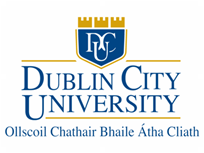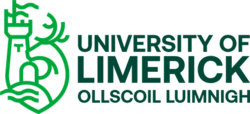About Ireland
Studying in Ireland offers an exceptional opportunity to advance your education and career globally. With top-ranked universities offering diverse postgraduate programs in fields like business, engineering, technology, and the arts, Ireland is the ideal destination for students seeking to deepen their expertise. The education system is built to foster innovation, critical thinking, and practical skills, ensuring you’re fully prepared for success. Irish universities are renowned for their high-quality teaching, research, and global networks, giving you access to opportunities worldwide.
Intakes for academic years include two main admission periods: Fall, which starts in early September, and Spring, which begins in late January.
Beyond academics, Ireland’s thriving job market is linked to major industries such as technology, finance, and pharmaceuticals. As an international student, you can benefit from a 2-year post-study work permit to gain valuable experience, especially with the European headquarters of global companies like MNCs actively recruiting Irish graduates. Ireland’s high quality of life, safe environment, and rich cultural heritage make it an ideal place to study and build your career. With numerous scholarship options and a welcoming international community, Ireland provides the perfect platform to achieve your academic and professional goals."
Why Ireland:
- World-Class Education: Ireland’s universities are ranked in the top 3% globally, offering high-quality education in various fields.
- Work While Studying: International students can work up to 20 hours per week during term time and 40 hours per week during holidays
- Post-Graduation Work Permit: Non-EU students can avail a two-year post-graduation work visa to gain valuable work experience in Ireland.
- High Quality of Life: Ireland is known for being one of the friendliest and safest countries, with beautiful landscapes and a high standard of living.
- Scholarships & Financial Aid: Numerous scholarships and financial aid options are available to international students to make education more affordable 1000-4000, Dublin 1000 mci 2000-3000..
- Career Opportunities: Ireland hosts global companies like Apple, Pfizer, and Intel, offering excellent career opportunities in technology, pharmaceuticals, and digital media.
- Post-Study Work & Networking:Ireland’s thriving job market and international business presence offer outstanding networking and career opportunities.
- Point-Based Immigration System: Ireland’s immigration system allows graduates to apply for permanent residency after meeting work requirements, potentially qualifying for citizenship after five years.
Popular Courses in Ireland
Computer Science & IT
Data Science and AI
Business Administration (MBA)
Finance and Accounting
Pharmaceutical Sciences
Biomedical Engineering
Construction
Renewable Energy
Aviation
Ireland Admission Requirements:
- Academics: 10, 12, and Bachelor's (Minimum 55% in the relevant degree) year-wise, provisional, and consolidated mark sheets
- Language Proficiency Requirements:
- IELTS 6.5 with No band less than 6.0
- TOFEL: 80
- PTE, Some University Accepts DET
- CV/Resume: Updated CV
- Recommendation Letters:Three LORs (two from professors, one from employer if applicable)
- Work Experience Letter and Supporting Documents.
- Other Certificates relevant to the chosen program.
- SOP (Statement of Purpose):Describe how the program aligns with your career goals and previous qualifications/work experience.
- Proof of Financial Resources: Show proof of financial resources as per requirements
- Passport
Education Costs for Studying in Ireland:
| Undergraduate Course | |
|---|---|
| Engineering | €9,100 – €20,300 |
| Master’s Course | |
| Engineering,Science & Technology | €9,150 – €18,000 |
| Arts & Humanities | €8,900 – €20,000 |
| Business | €9,150 – €18,800 |
Note: Fees may vary by university and program.
| Living Expenses | |
|---|---|
| Accommodation: | € 350-700 (Sharing)* |
| Groceries: | €200 - 300 (sharing)* |
| Transportation: | € 50 - 100 (Public Transport)* |
| Miscellaneous Expenses | € 200-300 Typically around* |
Note:*Fees are for informational purposes and may vary by university. Accommodation and miscellaneous costs differ based on student preferences and cities of residence*
Top universities
Have a question? Check out the FAQ
Do I need to speak Irish to study in Ireland?
While Irish is one of the official languages, most academic programs are taught in English, so proficiency in English is key for studying in Ireland.
How do I apply for a student visa to study in Ireland?
To apply for a student visa, you must provide an acceptance letter from an accredited Irish institution, proof of sufficient financial support, health insurance, and a completed visa application.
How can I find accommodation as an international student in Ireland?
You can find accommodation through university housing services, private rental platforms, or by sharing apartments with other students.
Are there scholarships available for international students in Ireland?
Yes, there are several scholarships for international students, including those offered by Irish universities and the Government of Ireland Scholarships.
How many days will it take to get a Student visa?
If you are applying for an Irish student visa from India, the processing time generally takes about 4 to 8 weeks.
Can I work while studying in Ireland?
Yes, international students in Ireland can work part-time during their studies, typically up to 20 hours per week during term time and 40 hours per week during holidays.
How can I get a job after completing my studies?
After completing your studies, you can apply for the Graduate Scheme visa, which allows international students to stay in Ireland for up to 24 months (depending on the level of your qualification) to look for work in Ireland.
Can I get a Permanent Residency (PR)? When can I start applying?
Yes, it’s possible to apply for Permanent Residency after living and working in Ireland for a certain period. Generally, you can apply after 5 years of work in Ireland under a work permit or Stamp 1 visa. However, it's important to meet the residency and work criteria specified by Irish immigration law.




.png)
.png)
.png)
.png)


